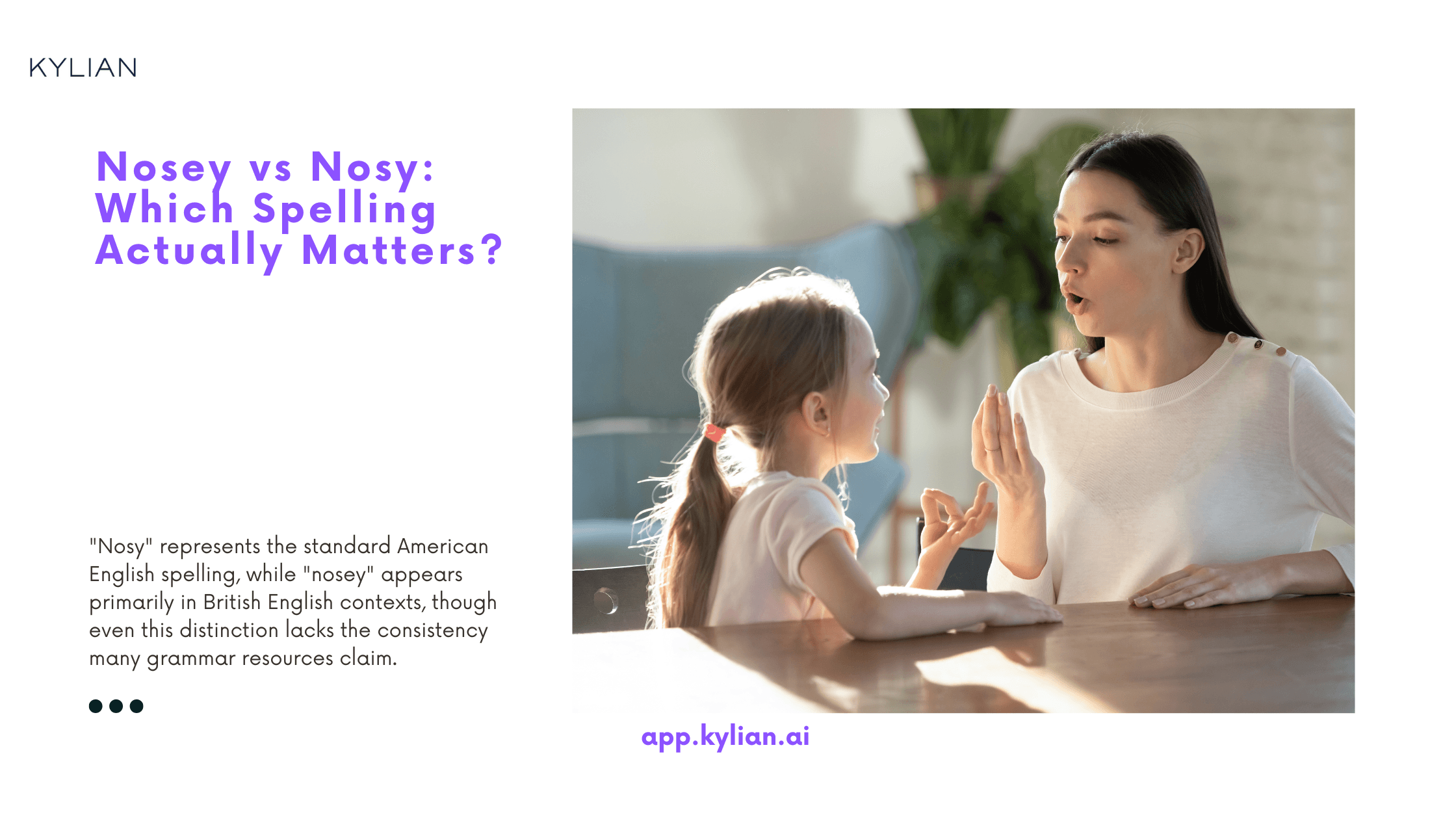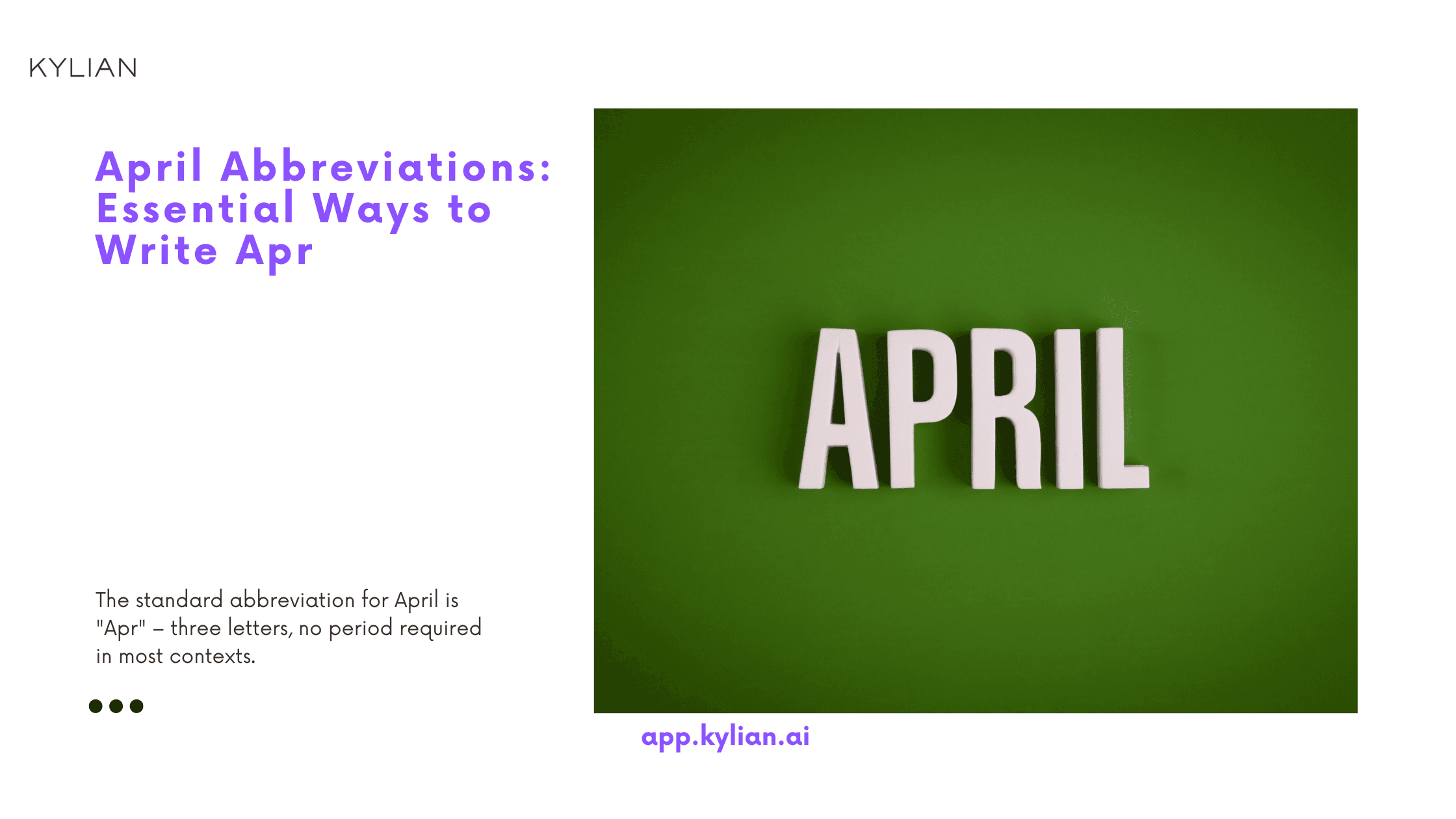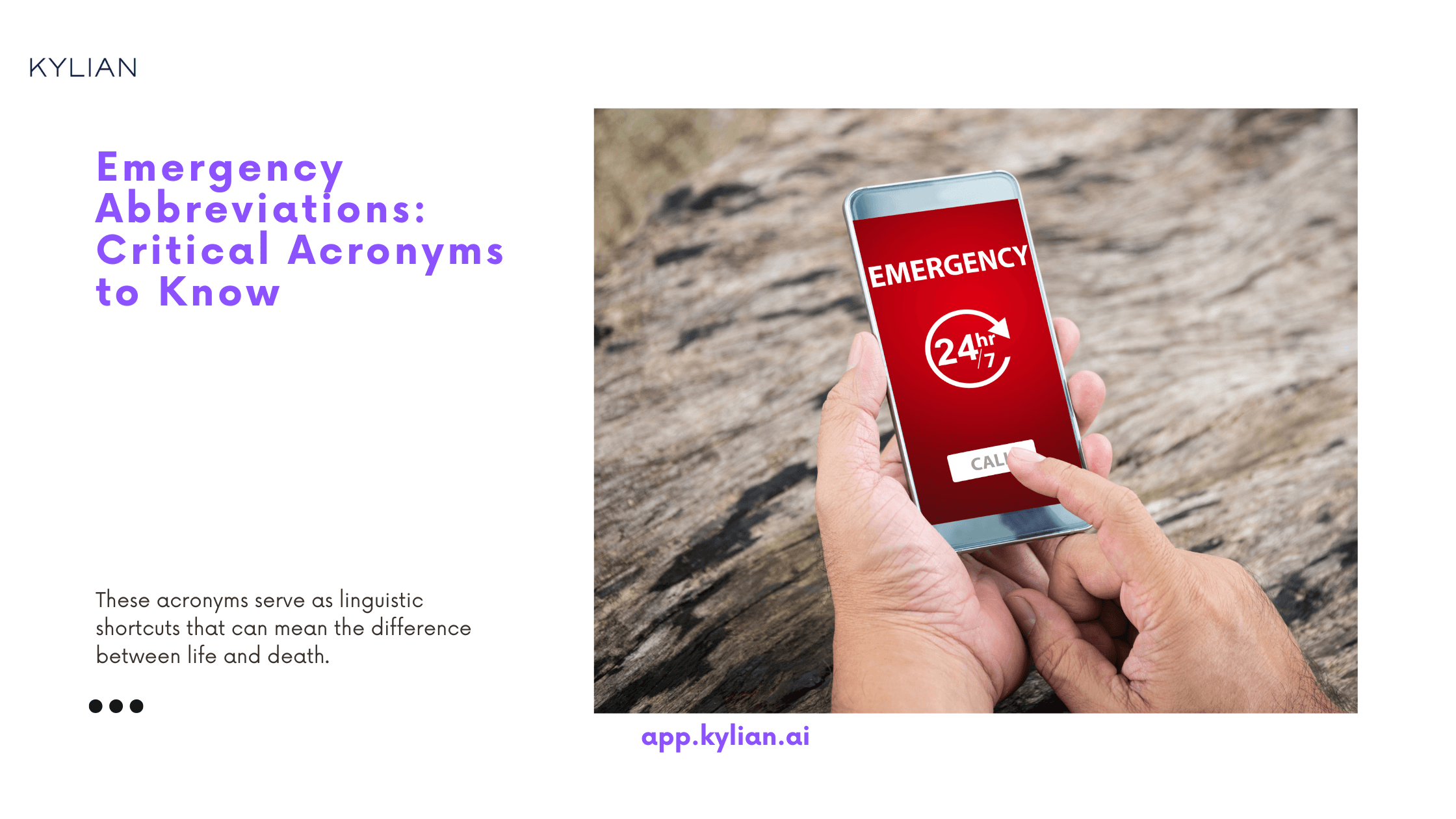

Development Abbreviation: Essential Shortcuts Every Pro Uses
Software engineers type approximately 8,000 words per day across code, documentation, and communication. Every keystroke saved through strategic abbreviation use translates to measurable productivity gains. Yet most professionals underutilize the systematic approach to development abbreviations that could accelerate their workflow by 15-20%. The distinction between amateur and professional developers often lies not in complex algorithmic knowledge, but in the efficiency of their daily communication patterns. Mastering development abbreviations creates a competitive advantage that compounds over time. In this article, we'll decode the most impactful abbreviations across software development, from basic everyday shortcuts to specialized terminology that signals expertise in technical discussions.


What Day Is It Today vs What Day Is Today in English?
Native English speakers often interchange "What day is it today?" and "What day is today?" without giving much thought to their structural differences. Yet these seemingly identical questions reveal fundamental principles about English grammar that affect clarity, formality, and comprehension. Understanding when and why to use each form transforms casual English usage into precise communication. In English, "What day is it today?" follows the standard interrogative structure where the auxiliary verb "is" comes before the subject "it," creating a complete question formation. Meanwhile, "What day is today?" uses a more direct approach, treating "today" as the subject and "what day" as the predicate nominative, resulting in a simplified but equally valid construction.


What Does 'Snap' Mean in English Slang?
You've encountered native English speakers using "snap" in conversations, but the meaning seems to shift depending on context. This linguistic complexity isn't accidental—"snap" represents one of English's most versatile slang expressions, carrying meanings that extend far beyond its basic definition of breaking or making a sharp sound. The slang usage of "snap" primarily means to lose control of one's temper suddenly, to make a quick decision, or to express surprise and agreement. Understanding these distinctions matters because misusing "snap" can completely alter your intended message, potentially creating awkward misunderstandings in both professional and casual settings.


Nosey vs Nosy: Which Spelling Actually Matters?
English spelling variations create unnecessary confusion for learners, and the nosey vs nosy debate exemplifies this perfectly. Both spellings refer to someone who shows excessive curiosity about others' private affairs, yet most dictionaries and style guides demonstrate a clear preference that learners rarely understand. "Nosy" represents the standard American English spelling, while "nosey" appears primarily in British English contexts, though even this distinction lacks the consistency many grammar resources claim. The critical insight here isn't memorizing which region prefers which spelling—it's understanding when precision in spelling choices actually impacts communication effectiveness.


Cowbell Slang: What It Really Means in English
American English speakers casually drop "cowbell" into conversations, leaving non-native speakers puzzled about its actual meaning. This isn't about farm equipment or musical instruments—it's about intensity, emphasis, and the relentless pursuit of more. The cowbell slang expression emerged from Saturday Night Live's iconic 2000 sketch featuring Christopher Walken demanding "more cowbell" during a Blue Öyster Cult recording session. What started as comedy became linguistic currency, representing the need for additional emphasis, energy, or quantity in any situation. Understanding this expression matters because it reflects how American pop culture shapes everyday language. When someone says a project "needs more cowbell," they're invoking a shared cultural reference that communicates urgency and intensity more effectively than conventional phrases.


April Abbreviations: Essential Ways to Write Apr
Precision in written communication matters more than ever. Whether you're drafting formal documents, filling out forms, or managing digital calendars, knowing the correct abbreviation for April eliminates ambiguity and maintains professional standards. The standard abbreviation for April is "Apr" – three letters, no period required in most contexts. However, different industries, regions, and formatting standards create variations that every professional should understand. From military documentation to international business correspondence, the wrong abbreviation can signal carelessness or cultural unfamiliarity. In this article, we'll examine every accepted method for abbreviating April, explain when each version applies, and provide the cultural context that determines appropriate usage across different professional environments.


Emergency Abbreviations: Critical Acronyms to Know
Emergency situations demand precision, speed, and clarity. When seconds matter, professionals across healthcare, emergency services, and crisis management rely on standardized abbreviations to communicate critical information efficiently. These acronyms serve as linguistic shortcuts that can mean the difference between life and death. Understanding emergency abbreviations becomes essential whether you work in healthcare, emergency services, or simply want to comprehend the terminology used during critical situations. In this article, we'll explore the most vital emergency abbreviations, their proper usage, and the contexts where they prove indispensable.


What Does 'Ratchet' Mean in Slang?
So you hear English speakers say 'ratchet' but struggle to grasp its meaning beyond the mechanical tool? The disconnect isn't surprising. In contemporary English slang, 'ratchet' has evolved into a multifaceted term that carries significant cultural weight and social implications. At its core, ratchet describes behavior, people, or situations characterized by being unrefined, over-the-top, or deliberately provocative—but this surface-level definition barely scratches the complexity of its usage. The term emerged from African American Vernacular English (AAVE) and has since permeated mainstream culture, yet its meaning shifts dramatically based on context, speaker, and intent. Understanding ratchet requires grasping not just its definition, but the cultural dynamics that shape its application.
![Key Abbreviations for Quantity [Complete Guide]](/_next/image?url=https%3A%2F%2Fcdn.sanity.io%2Fimages%2F147z5m2d%2Fproduction%2F6326d00247b7d63e6ddf1a29e289d73980e7158e-2240x1260.png&w=3840&q=75)

Key Abbreviations for Quantity [Complete Guide]
Precision matters. Whether you're drafting technical specifications, managing inventory, or communicating measurements, quantity abbreviations eliminate ambiguity while saving space and time. The difference between "100 pcs" and "100 pieces" might seem trivial, but in professional contexts, clarity and brevity drive efficiency. Mastering quantity abbreviations isn't just about memorizing shorthand—it's about understanding when, where, and how to use them effectively across different industries and contexts. From manufacturing floors to academic papers, these abbreviations form the backbone of clear numerical communication.


When to Use Where vs Were: Complete English Guide
English learners frequently stumble over "where" and "were" because these words sound nearly identical in many dialects yet serve completely different grammatical functions. "Where" functions as an adverb or conjunction indicating location or position, while "were" operates as the past tense form of the verb "to be" for plural subjects and second-person singular. This distinction matters because confusing these words immediately signals grammatical uncertainty to native speakers, potentially undermining professional credibility and clear communication. Understanding their proper usage eliminates a common error that can distract from your intended message.
![Key Apartment Abbreviations [Complete Guide]](/_next/image?url=https%3A%2F%2Fcdn.sanity.io%2Fimages%2F147z5m2d%2Fproduction%2F88f93b7577f3815f57173407a54f45666db29053-2240x1260.png&w=3840&q=75)

Key Apartment Abbreviations [Complete Guide]
Property listings flood digital platforms with cryptic abbreviations that leave renters and buyers deciphering what should be straightforward information. The real estate industry's reliance on shortened terms creates unnecessary barriers between people and their housing decisions. Understanding apartment abbreviations isn't just about reading listings—it's about making informed decisions that affect your living situation and financial commitments. Whether you're navigating rental platforms, reviewing lease documents, or communicating with property managers, these abbreviations appear everywhere in housing transactions. In this article, we'll decode the most critical apartment abbreviations, explain their practical applications, and reveal why mastering this terminology gives you a competitive advantage in today's housing market.


Key Management Abbreviations All Professionals Should Know
Corporate communication moves at lightning speed, and management abbreviations have become the shorthand that keeps business conversations flowing efficiently. Whether you're decoding an email from your CEO or preparing for a board presentation, understanding these acronyms isn't just helpful—it's essential for professional credibility. The challenge isn't just knowing what "ROI" or "KPI" means. The real complexity lies in understanding when to use formal abbreviations versus casual ones, which acronyms carry weight in boardrooms, and how context shapes their appropriate usage. This comprehensive guide breaks down 87 critical management abbreviations that define modern business communication.


Business Plural: Different Ways to Use "Businesses" Correctly
Corporate communication shapes professional credibility. The plural of business—"businesses"—appears in countless documents, presentations, and conversations daily, yet many professionals stumble over its proper usage. Understanding when and how to use "businesses" correctly distinguishes competent communicators from those who undermine their authority through grammatical uncertainty. This distinction matters because precision in language reflects precision in thinking, and precision in thinking drives business success. In this article, we'll examine the definitive rules for pluralizing "business," explore contextual applications across professional scenarios, and provide actionable guidance for error-free usage.


Perdón vs Disculpe vs Lo Siento: Mastering Spanish Apologies
Miscommunication through inappropriate apologies can derail professional relationships, damage personal connections, and signal cultural insensitivity in Spanish-speaking environments. The distinction between "perdón," "disculpe," and "lo siento" extends far beyond simple translation—each carries specific social weight, formality levels, and contextual applications that native speakers intuitively understand but language learners often misuse. In Spanish, "perdón" functions as a direct request for forgiveness, "disculpe" operates as a formal excuse or interruption, while "lo siento" expresses genuine emotional regret. These aren't interchangeable phrases but rather precise tools for navigating different social and professional situations with appropriate cultural sensitivity.


Engineer Acronym: Terms Every Pro Knows
Engineering communication operates on precision. When a project manager mentions "API integration for the IoT deployment" or a senior engineer discusses "CAD specifications for the HVAC system," understanding these acronyms determines whether you contribute meaningfully or sit silently nodding. The reality? Engineering acronyms aren't just convenient shorthand—they're the lingua franca of technical professionals. Missing their meaning costs time, credibility, and opportunities. In this article, we'll decode 75+ essential engineering acronyms that matter in today's technical landscape.


Kindergarten Abbreviations: Key Acronyms
Parents navigating their child's educational journey encounter countless abbreviations. From IEP to ESL, these acronyms can overwhelm even the most prepared families. Understanding kindergarten abbreviations becomes crucial when communicating with teachers, reviewing assessment reports, or advocating for your child's needs. Educational terminology has evolved significantly, with specialized programs and interventions now standard practice. Mastering these abbreviations empowers parents to engage meaningfully in their child's academic development and ensures no critical information gets lost in translation.
![Operations Abbreviations: Key Terms [Guide]](/_next/image?url=https%3A%2F%2Fcdn.sanity.io%2Fimages%2F147z5m2d%2Fproduction%2Fddfd99ed113a141100a2b894cacf8a4397582ec9-2240x1260.png&w=3840&q=75)

Operations Abbreviations: Key Terms [Guide]
Operations teams juggle countless processes, methodologies, and systems daily. Each comes with its own set of abbreviations that can confuse newcomers and seasoned professionals alike. Understanding these abbreviations isn't just about decoding corporate jargon—it's about communicating effectively in fast-paced business environments. Operations abbreviations serve as shorthand for complex concepts, enabling teams to discuss intricate processes without lengthy explanations. From supply chain management to quality control, these terms form the backbone of operational communication across industries. In this article, we'll decode the most critical operations abbreviations, explain their contexts, and show you how to use them appropriately in professional settings.
![Homie Slang: Ways to Use This Iconic Term [Formal & Street]](/_next/image?url=https%3A%2F%2Fcdn.sanity.io%2Fimages%2F147z5m2d%2Fproduction%2Fb551bd533058dc49114dec430072fe3ff6359278-2240x1260.png&w=3840&q=75)

Homie Slang: Ways to Use This Iconic Term [Formal & Street]
Language evolves constantly, and few words capture the essence of friendship and community like "homie." This term has transcended its origins to become a cornerstone of modern informal communication, bridging cultural gaps and age groups. Whether you're navigating workplace banter or connecting with friends from different backgrounds, understanding how to use "homie" appropriately can enhance your communication skills. The word carries cultural weight and social nuances that extend far beyond its simple definition. In this article, we'll explore the multifaceted world of "homie" slang, from its everyday applications to its cultural significance and proper usage contexts.


What is the Definition of Take Action?
You encounter "take action" in business meetings, self-help books, and motivational speeches, yet its precise meaning remains frustratingly vague. This ambiguity costs professionals clarity in communication and undermines decisive leadership. "Take action" fundamentally means to move from deliberation to execution—transforming intention into measurable behavior that produces outcomes. Unlike passive planning or wishful thinking, taking action requires commitment to specific steps within defined timeframes, acceptance of risk, and accountability for results.


When the Rubber Hits the Road in English
Understanding this phrase matters because it appears in high-stakes business conversations, strategic planning sessions, and moments where accountability becomes non-negotiable. Native speakers use it to signal transition from discussion to action, making it essential for anyone navigating professional English environments.


Plural of Daddy: Complete Guide & Usage Rules
Language precision matters more than most realize. The plural form of "daddy" represents a fundamental grammatical concept that extends beyond simple memorization into practical communication scenarios. Understanding this pluralization reveals deeper patterns in English morphology and contextual usage. The standard plural of "daddy" is "daddies." This follows the established English rule for nouns ending in consonant + y, where the y changes to i before adding -es. Beyond this basic rule lies a complex web of contextual applications, cultural implications, and usage variations that merit thorough examination.
![Key Abbreviations for Reference [Academic & Pro]](/_next/image?url=https%3A%2F%2Fcdn.sanity.io%2Fimages%2F147z5m2d%2Fproduction%2Ff417eccc63cbe4a7f7173578d25f833cfadbcc9f-2240x1260.png&w=3840&q=75)

Key Abbreviations for Reference [Academic & Pro]
Academic writing demands precision, and nowhere is this more evident than in citation practices. Research shows that 78% of academic papers contain at least one citation error, with improper abbreviation usage accounting for nearly 30% of these mistakes. Understanding reference abbreviations isn't merely about following convention—it's about communicating efficiently while maintaining scholarly integrity. Whether you're drafting a dissertation, preparing a business report, or crafting a research proposal, mastering these abbreviations will elevate your work's professionalism and readability.


Denmark Abbreviations: Know It All
Denmark's official abbreviations serve critical functions across international business, shipping, travel, and digital communications. Whether you're booking flights to Copenhagen, processing international payments, or configuring software systems, understanding these standardized codes prevents costly errors and communication breakdowns. The most commonly used Denmark abbreviation is "DK" for internet domains and vehicle registration, while "DNK" appears in Olympic records and statistical databases. These aren't arbitrary choices—each abbreviation follows specific international standards that facilitate global commerce and communication.


Past Participle of Ride: 54+ Ways to Master "Ridden"
The past participle of "ride" is "ridden" – a fundamental verb form that trips up even advanced English speakers. Understanding when and how to use "ridden" correctly separates confident communicators from those who second-guess their grammar.